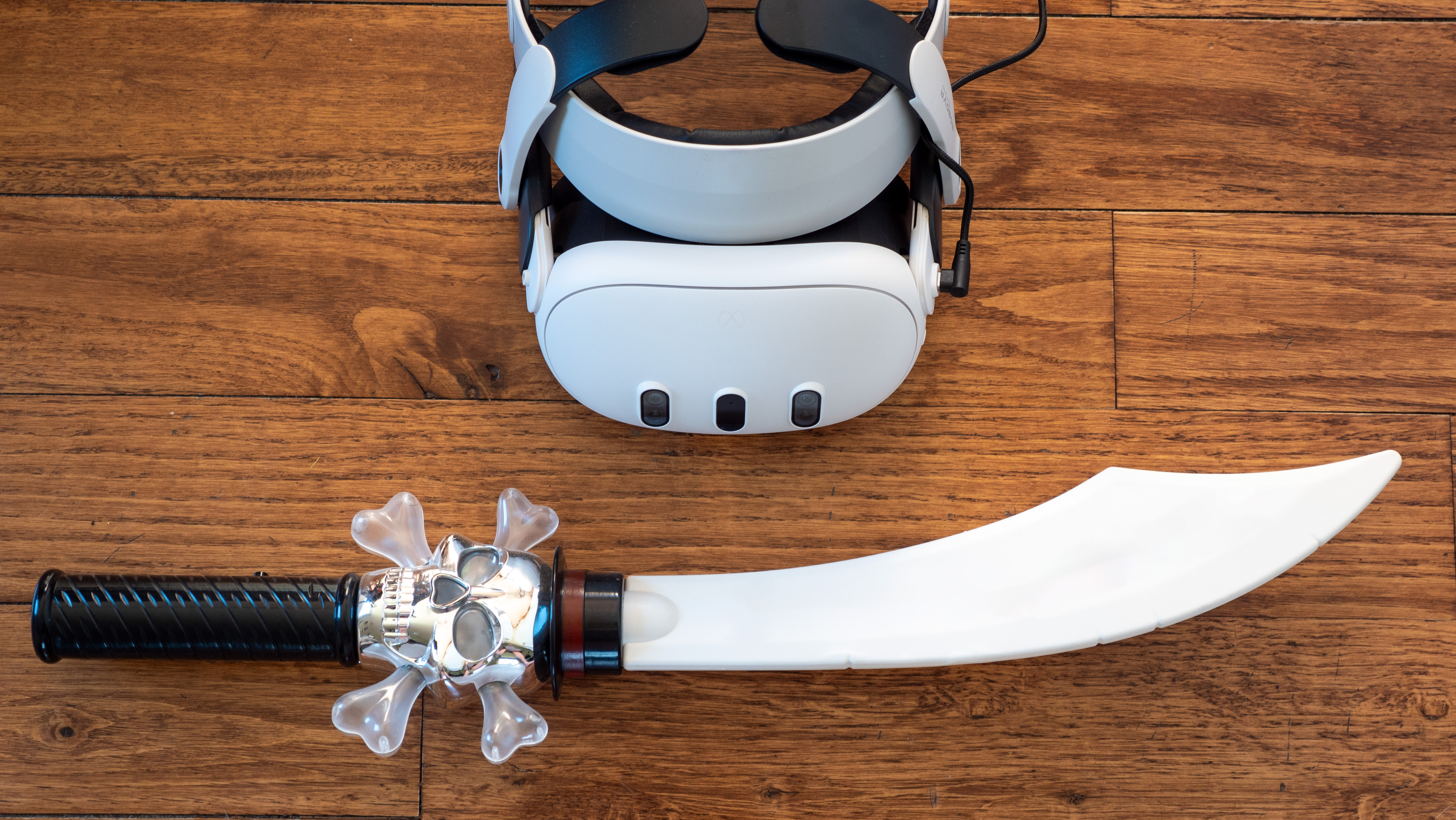
There I was, standing on the deck of a 19th-century Chinese pirate ship, staring out at the vast Sampan Maze lit only by a full moon and a handful of torches along the way. No doubt, my rival was looking over the same waters on the other side, plotting the demise of who would become one of history's most fearsome pirate queens.

In his weekly column, Android Central Senior Content Producer Nick Sutrich delves into all things VR, from new hardware to new games, upcoming technologies, and so much more.
The concept itself is interesting enough, but this story wouldn't be nearly as intriguing if it weren't presented the right way. There's no denying the importance and influence of a person like Cheng Shih, who helped push women's rights forward in her own unique way. But this story, among others in page after page of a boring history book, simply wouldn't hold the same weight — it certainly never did for me when I was in school!
That's why Meta Quest games like The Pirate Queen are the future of education. The story of Cheng Shih in The Pirate Queen, which is brought to life by Singer Films Limited & Singer Interactive Limited and award-winning actress Lucy Liu, is one of historical significance, and the main plot points in the game are based on known events. What takes place in between is classic historical fiction, but that's what made me love the title so much.
The difference between a historical fiction book — my favorite genre, by the way — and a game like this is being able to experience these events for myself. That first-hand experience not only made them feel real, it made them memorable. That, in and of itself, is the key to why this sort of experience is so important for education.
Chatting with the experts

Meta recently announced that it would begin a new VR for education initiative, aiming to take off this Fall when school begins anew. The program is designed to provide access to "a range of education-specific apps and features" for teachers, trainers, and school administrators.
Based on my short interaction with Jerry Jackson, a high school teacher who currently uses a suite of Meta Quest 3 headsets in his classroom, it's about time Meta began focusing on using Quest headsets in schools like Google uses Chromebooks. The forefront of this new program seems to deal with managing multiple Quest devices at once, something Jackson says is sorely needed.
Meta says its new program will allow teachers to skip the need to prepare headsets individually, allowing students to "pick up the headset and get started right away."
But what about the content itself? I think titles like The Pirate Queen could play a pivotal role in helping students better understand and empathize with historical characters from all walks of life.
Android Central's Shruti Shekar and I had the opportunity to interview Lucy Liu and Eloise Singer as part of the Android Central Podcast. We discussed how the group got started on the idea of The Pirate Queen, how the story became a VR game before it started being made into a movie, and how VR experiences can be used to help you feel and understand the personal plight of another human being.
A paradigm shift
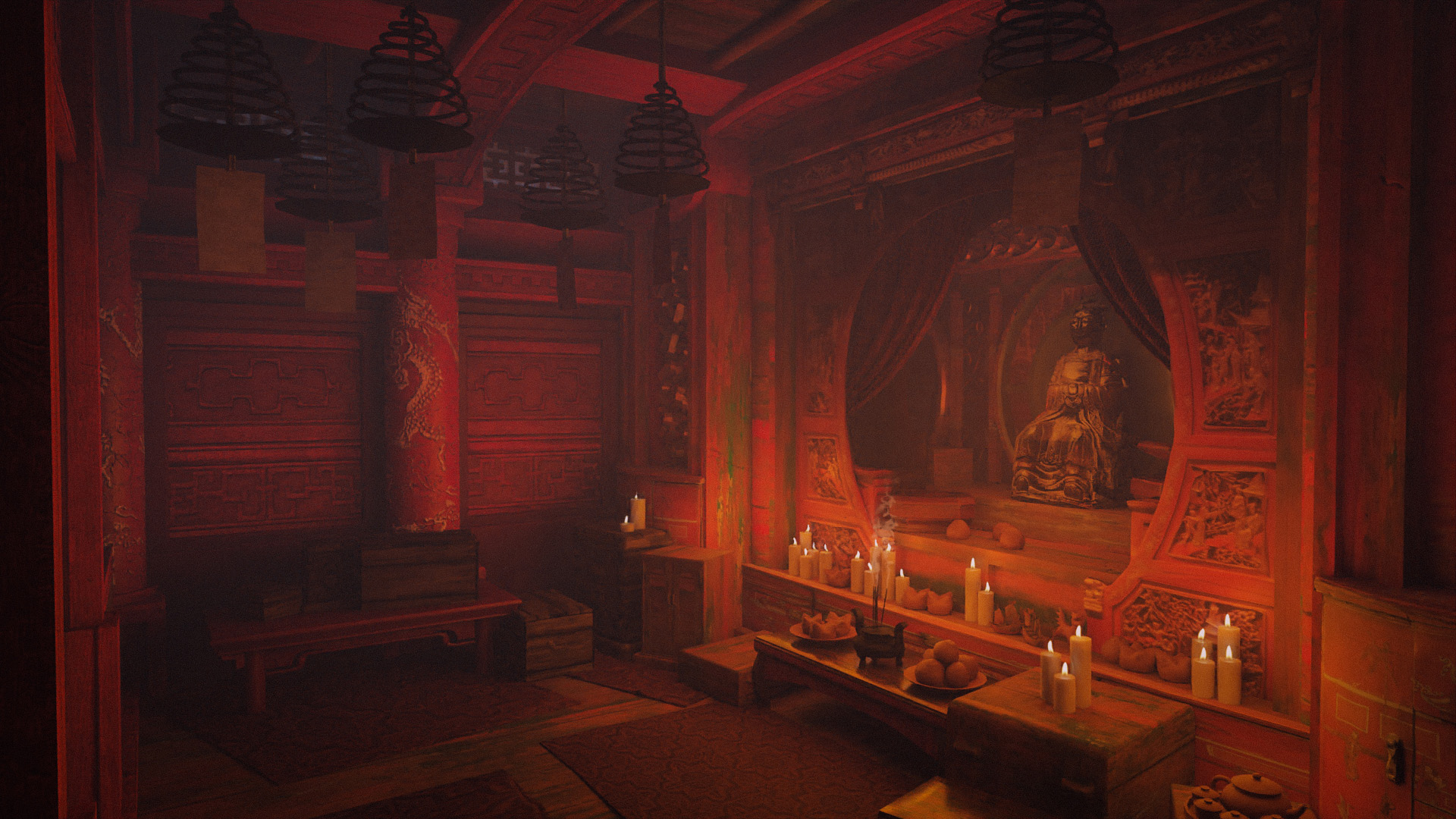
My life experience has often been one with little discrimination or hardship. While I consider myself a compassionate individual, there's only so much I can do to truly empathize with stories of humans who have struggled throughout history. But VR can at least help me do better by putting me in the shoes of a person and having me live out at least a small portion of their life.
In 2019, Felix & Paul Studios published an immersive film called Traveling While Black. You can watch it for free on the Meta Quest TV app, along with plenty of other films, and it'll take less than 20 minutes of your time.
This film was the first time I experienced the feelings that come with first-person immersion into another person's story. Yet, it's still mainly told from the perspective of a person sitting and talking to another person. I imagine it would have been an even more powerful story if I had actually seen it through the eyes of one of the people.
The game focuses entirely on the female lead character and her struggles, creating a "whole new genre" for pirates in the entertainment space.
Eloise Singer, the game's director, told us that "female hands didn't exist in VR at the time that we started developing the game." Since then, we've seen some prominent female roles appear in VR — the foremost is Half-Life: Alyx, of course — but most of Alyx's hands are covered in gravity gloves.
In The Pirate Queen, Cheng Shih's hands are fully modeled to look like female hands, including rings and adorning jewelry that make her feel like a pirate. Initially, Singer and the rest of the development team were told that including hands that looked so feminine would keep male players from wanting to play the game.
Ridiculous sounding or not, the fact that any sort of pushback happened at all speaks volumes about the "disparity of what people think they want and what people are willing to try," as Liu put it. She notes that "only about 20% of games feature female leads," despite statistics showing that females make up roughly half of the gaming population.
The Pirate Queen is immersive in a different way, but it still attempts to tell the story of discrimination against a group of people. Women's rights were nary a concern among the men who ran society at the time, and even among lawless pirates, it doesn't seem many were convinced that a woman could be in charge of a fleet of hundreds of ships.
The game takes around two hours to beat and focuses solely on the night that Cheng Shih came to power. As Lucy Liu told us in the interview, "It's not one of those shoot-em-up kind of games." This is more of a narrative adventure designed for people who appreciate immersive narratives. It's not a game that's going to appeal to someone looking for nonstop action or addictive gameplay loops.
As such, I'd recommend taking your time in each of the game's thirteen chapters. Walk and look around each room and pick up the objects on the shelves and in the cabinets. Take a moment to listen to Lucy Liu's brilliant narration of the tale. If you do, I promise you'll learn something you've never known.
This is essentially a feature-length film packaged in an interactive way.
It's these moments that really make the adventure shine, and it's important to know what you're getting. This is essentially a feature-length film packaged in an interactive way. You'll not only be learning about Cheng Shih's story — a woman also known as Zheng Yi Sao, which means "Wife of Zheng Yi" — but about Chinese history and the women who may have gone unnoticed during that time.
As director Eloise Singer said, "you are literally stepping into the shoes of The Pirate Queen."
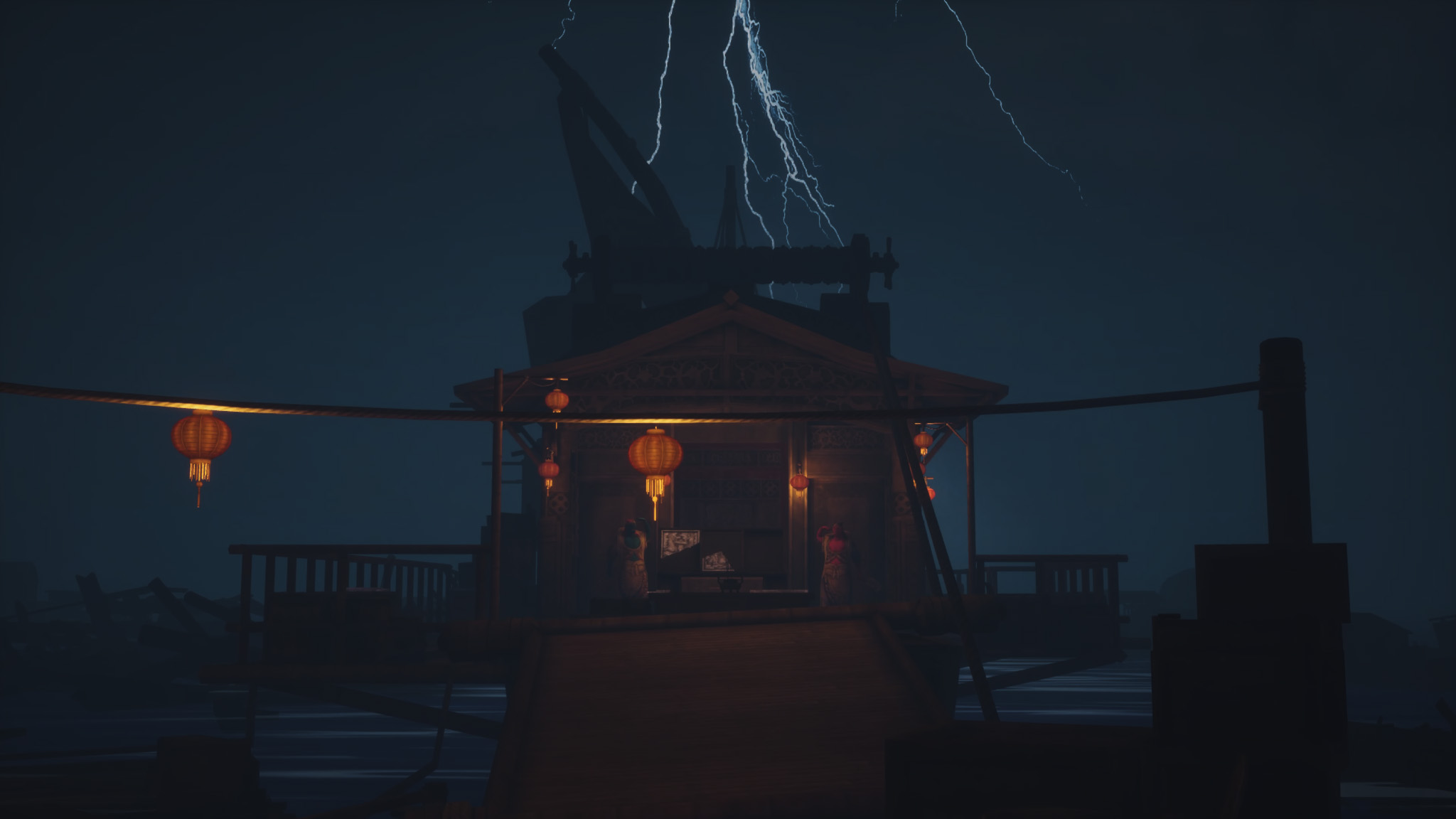
For instance, I knew about the horrific practice of bound feet but never quite grasped how small one of these boots was until I played the game. Picking one up from the table, I originally thought it might be a tea cup or something similar. Imagine the horror when I found out a woman's feet might have to fit inside.
So many objects scattered throughout the story have substantial meaning that delivers an important historical narrative and context that I might otherwise not appreciate if I weren't holding them in my hands. Surprisingly, the impact of these stories wasn't reduced despite the lackluster visual quality.
I enjoyed the escape room-style puzzles and the subtle hints when I got stuck.
I also appreciated the light escape room-style gameplay design here. I'm a person who loves puzzle games and jumps at the chance to enjoy one whenever I can. Most of the rooms were simple, and I often solved the puzzles before Ms. Liu's narrative finished, but there were a few times when I wasn't sure how to progress, and the game gently nudged me to the right item.
These cleverly placed whisps of smoke or rattling doors felt like they fit well into the narrative instead of providing a giant glowing arrow to help me brainlessly meander to the next room.
After all, a game like The Pirate Queen isn't designed to be finished quickly. It's designed to be savored and appreciated.
The gamification of education
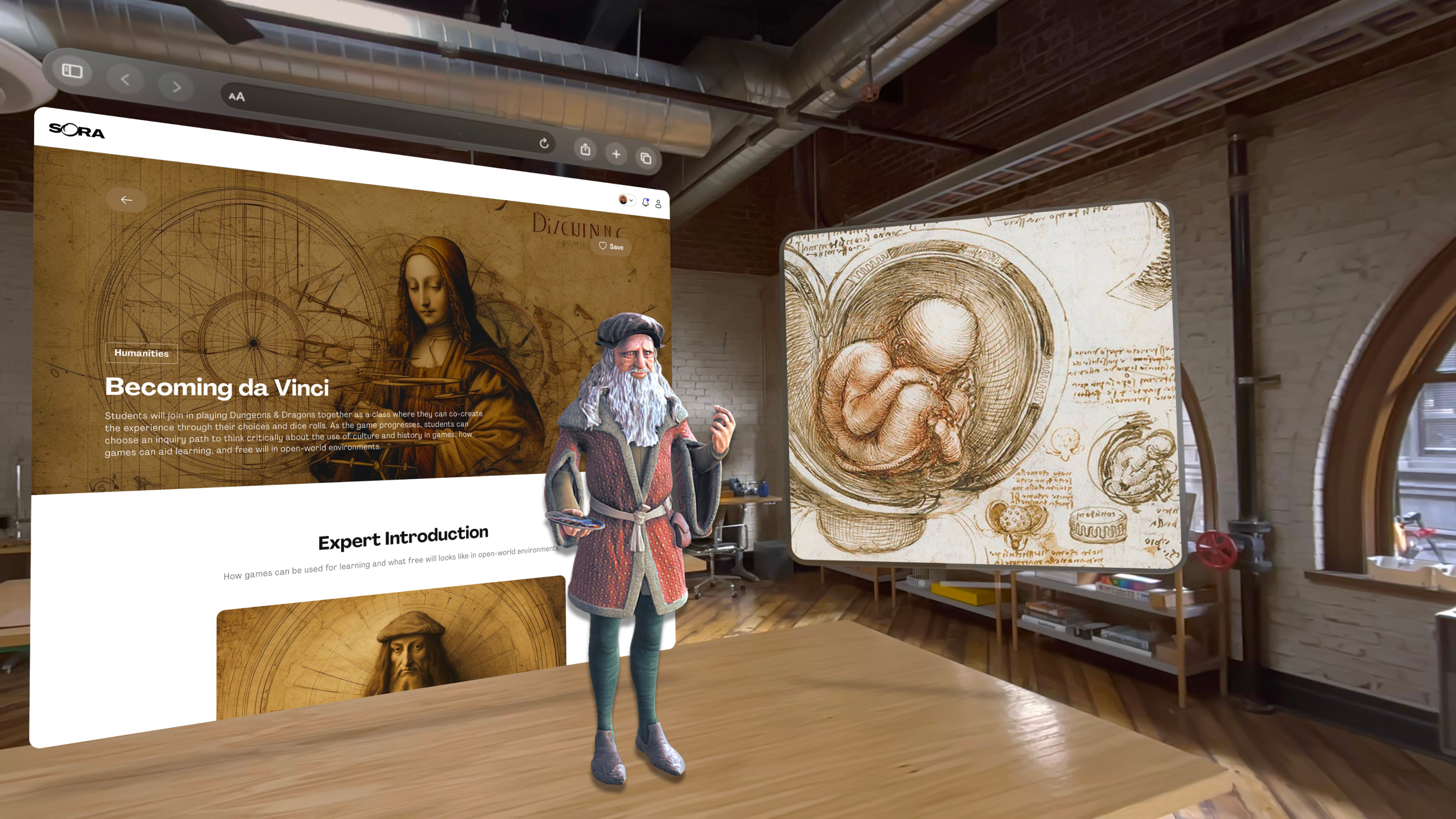
Many parents who were forced to enroll in virtual school during COVID will tell you that hands-on education is generally better than staring at a laptop for hours on end. Virtual school works quite well for some students but is a very poor choice for others when done on a Chromebook.
But if more kids had access to quality VR curriculum, I believe the idea of virtual schooling could be turned on its head. Just as the gamification of chores makes them more fun, the gamification of education — providing incentives to encourage progression — is probably the best way to make it enjoyable.
I had a chat with Garrett Smiley, CEO of Sora Schools, who talked to me briefly about how the school is working to implement a VR curriculum into its virtual-only school structure.
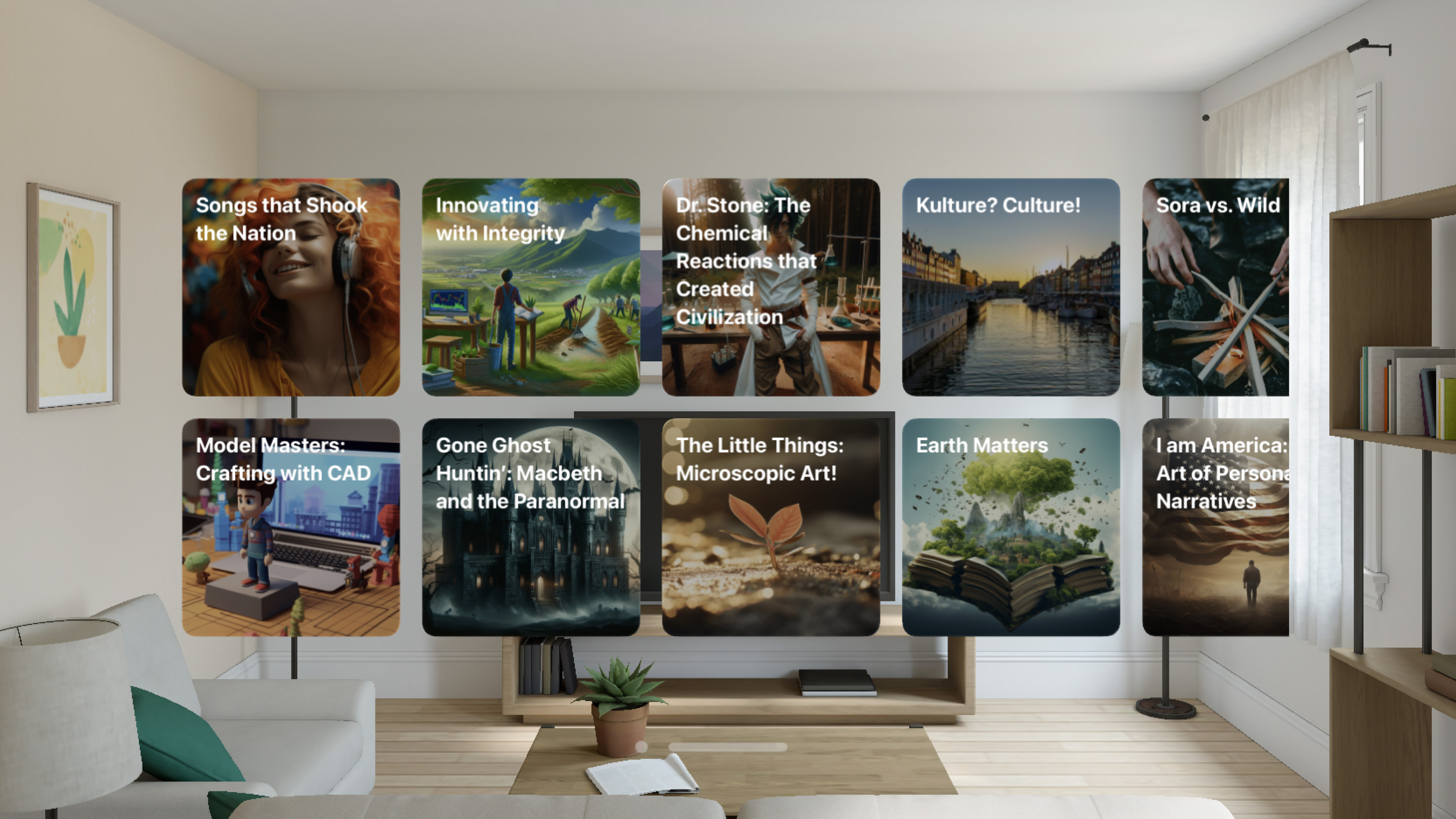
While I'm not sure the school is currently allowing students to play through interactive narratives like The Pirate Queen, the examples I was given seem far more convincing than watching someone teach through a Zoom meeting on a flat display.
Smiley was quick to note that most of his school's VR curriculum was optional and supplemental but nonetheless intriguing and truly interesting.
"At Sora, we're super excited about how VR and AR are shaking things up in the world of learning," Smiley told me in the interview. "In the next few years, this technology will no longer be a dream but an everyday reality. These gadgets are getting cheaper and more powerful, so they will be accessible to more people.
We're on a continuous mission to make learning interesting. Imagine diving into our Sora Catalog of Expeditions and feeling like you're there. Whether you're learning from historical characters, diving deep into the ocean, or even walking on Mars, we're all about making it fun, interactive, and igniting curiosity in students."
Seeing is believing, and being able to hold something in your hands makes it even more memorable and personal.
Thankfully, those of us with VR headsets don't have to wait to experience great content that can also be educational. My very first room-scale VR experience was the Blu by WEVR. I played it on an HTC Vive at IFA 2015 in Belin and was blown away at the true size of a blue whale that swam over my head. You can play it today with a decent gaming PC capable of VR.
Games like Terra Alia take the gamification of education in a literal sense, dropping you into an RPG that teaches you a new language. This one is also a bit short, but the developers are working on updates and more content that'll be added free of charge.
Thankfully, the multiplayer beta just launched, showing that the developers are serious about keeping the game updated and relevant.
Even the environments and ships you'll be on in The Pirate Queen are realistically recreated. Singer told us that "every ship was designed to be historically accurate." After the team had originally started modeling the ships with wood and nails, it was learned that ships in China at the time only used dovetail joints. That meant everything had to be redesigned, but it also ensured the game ended up being more historically accurate.
Seeing is believing, and being able to hold something in your hands makes it even more memorable and personal. Titles like these help people learn better, feel more empathetic toward historical figures and events, and make education fun. It's a win-win for everyone involved, and I encourage you to give these titles a try!







